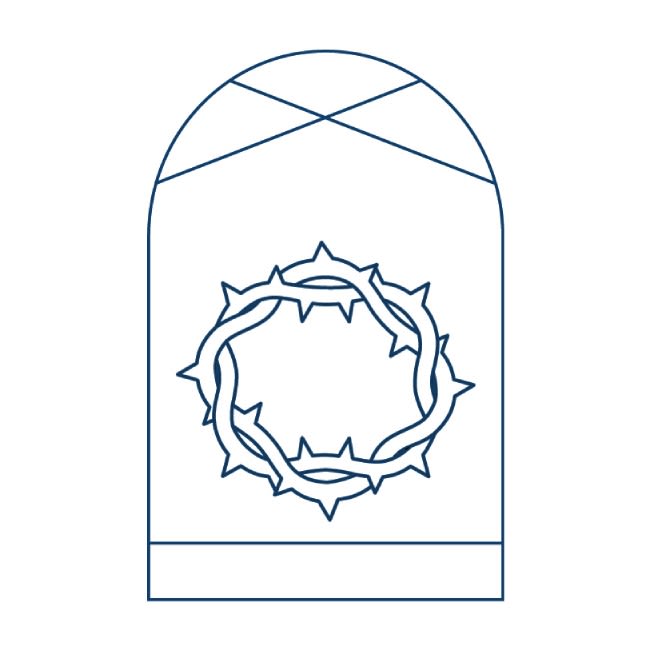Crown of Thorns - Symbol of Divine Humility

And the soldiers twisted together a crown of thorns and put it on his head and arrayed him in a purple robe. They came up to him, saying, “Hail, King of the Jews!” and struck him with their hands.
- John 19: 2-3 [ESV]
Passage: John 19:1-16
Reflection
The mockery of Jesus with a crown of thorns in John 19:2-3 testifies to His divine humility. The only accusation the Jews have against Jesus in Roman law is that He claims to be a king, but He has told Pilate that His kingdom is not of this world (John 18:36). Pilate delivers Jesus back to the Jews after the beating still robed and crowned and says, “look at this man!” (John 19:5). This helps us understand why the Roman soldiers were mocking Jesus: they simply thought the idea that the man in front of them was a king was absurd. The Romans’ treatment of Jesus is an attempt to show the Jews how absurd it is to think that Jesus is a king. The irony, of course, is that Jesus is the King of Kings. Jesus had the angels of His kingdom ready to fight for Him at a moment’s notice (John 18:36), and He willingly submitted Himself to the mockery of His kingship and allowed Himself to be viewed as a pathetic excuse for a king.
This is one of the primary examples of the unimaginable humility portrayed by the Son of God during His time on earth. The Son, while God Himself, humbled Himself to become man, then allowed others to humiliate, slander, beat, and murder Him. In the reality of Jesus’s identity, the crown of thorns forced onto His head in mockery proclaims His humility. Humility is one of God’s communicable attributes, which means that while we will never achieve the extent of humility that Jesus had, we should always strive to be humble as Jesus was humble. The fact that the bar is unreachable does not mean it is not worth pursuing; rather, it is the only reason we can be sure it is worth pursuing without end.
Application
Many students, including myself, come into college with a prideful mindset. Pride is extremely dangerous because of how unaware you are of its presence within yourself. In fact, pride largely manifests itself in today's culture through the deflated ego, which dangerously disguises itself as humility. Think of all the people today who struggle with identity, questioning if they are truly valued and accepted, living to seek approval. The ego is like an organ: you only notice it when something has gone wrong. Both a deflated and inflated ego result from pride. Our tendency to call it something else, to let it go unnoticed, makes it extremely dangerous.
Speaking from personal experience, pride is detrimental in this stage of life. While making new friends in college, I have experienced my pride causing problems in relationships. While in the stage of discovering who I am, I have experienced pride getting in the way of my fundamental identity in Christ. While seeking education, I have experienced pride’s ability to block learning. For every reason behind coming to college — community, identity, and education — pride has a counter to productivity.
Do not overlook the importance of humility. Strive in this stage of life to be in a relationship with the Lord in a way that humbles you as you grow closer to Him. Jesus has set the standard for you, and you will never meet it. This should not be discouraging at all — it should motivate you to start practicing right away.


